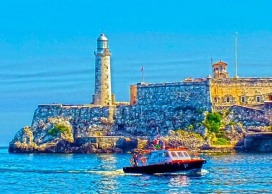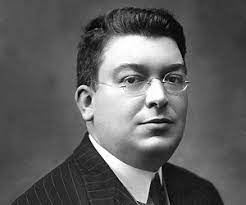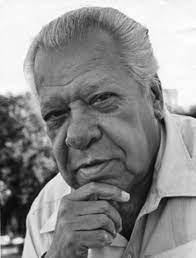Generales
Estos términos y condiciones reglamentan el acceso y uso del Portal del Gobierno de La Habana y de todos sus subdominios o dominios secundarios incluyendo sus contenidos y servicios, puestos a disposición a través del Portal de Internet www.lahabana.gob.cu
El Portal del Gobierno de La Habana puede actualizar en cualquier momento las condiciones expuestas en este documento, así como avisos legales, directrices y/o reglamentos de uso y que, según los casos, sustituirán, completarán y/o modificarán los Términos y Condiciones aquí recogidos. Se le recomienda que consulte periódicamente los términos y condiciones. Al acceder al portal del Gobierno de La Habana estará aceptando los términos y condiciones vigentes.
Uso
Usted se compromete a utilizar el Portal del Gobierno de La Habana únicamente con fines legítimos y de modo que no infrinja, restrinja o inhiba la utilización y disfrute de servicios de dicho sitio así como a no utilizar este Portal de Gobierno para la realización de actividades contrarias a las leyes, la moral, las buenas costumbres o al orden público establecido.
Se compromete a no acceder, o intentar acceder, a ninguno de los servicios utilizando medios automatizados, incluidos secuencias de comandos o rastreadores web. Asimismo, se compromete a no involucrarse en ninguna actividad que interfiera o que interrumpa los servicios o los servidores y redes conectados a aquellos.
Disponibilidad
El “Equipo del Portal” realizará todos los esfuerzos que sean razonables para intentar garantizar la disponibilidad y accesibilidad al Portal del Gobierno de La Habana, así como a sus servicios, veinticuatro horas al día durante todos los días del año. No obstante, en ocasiones, y, por ejemplo, debido a causas como el suministro de nuevas conexiones, los cambios de direccionamiento y/o la actualización de operaciones de mantenimiento necesarias que, en general, impliquen la suspensión del acceso o utilización del Portal, podrán producirse interrupciones por el tiempo que resulte necesario acometer dichas tareas.
Publicaciones relevantes o de impacto
Se muestran artículos destacados a criterio del “Equipo del Portal”.
Se destaca la actualidad de La Habana dentro y fuera de Cuba editada por el “equipo del Portal”. Se utilizan imágenes, fotografías y opinión gráfica que ilustran sucesos históricos o de actualidad habanera.
Listas de distribución
Envío a los usuarios expresamente suscritos por correo electrónico a todos o algunos de los siguientes mensajes: breves notificaciones sobre nuestros servicios o mensajes importantes.
Modificación de los contenidos y servicios
El “Equipo del Portal” se reserva la facultad de modificar, en cualquier momento y sin aviso previo, la presentación y configuración de sus contenidos y servicios. Usted reconoce y acepta expresamente que en cualquier momento se pueda interrumpir, desactivar y/o cancelar cualquiera de los contenidos y/o servicios.
Derechos de Autor de la información
Los derechos de autor sobre la información de terceros que se publica en el Portal del Gobierno de La Habana pertenecen a sus respectivos autores y su publicación en dicho sitio se realiza sin ánimos de lucro y con un propósito informativo.
Contribuciones al Portal del Gobierno de La Habana
Al compartir cualquier contribución (incluyendo cualquier texto, fotografía, gráfico, vídeo o audio) con el portal del Gobierno de La Habana usted se compromete a otorgar a este sitio, libre de cargo, el permiso para utilizar el material de cualquier modo que se considere conveniente (incluyendo la modificación, adaptación y traducción de su contribución por razones operativas o editoriales), en todos los casos y siempre que usted esté de acuerdo se mostrará su nombre como autor de la contribución.
Este sitio no tendrá obligación de publicar o traducir las contribuciones recibidas.
Enlaces al contenido publicado por el Portal del Gobierno de La Habana
El Portal del Gobierno de La Habana autoriza a terceros incluir en sus sitios web acceso a la información publicada por el “equipo del portal” utilizando enlaces para ello.
Enlaces a páginas web de terceros
El Portal del Gobierno de La Habana puede contener vínculos a sitios web que son controlados y mantenidos por terceros. Se hace el mayor esfuerzo para que los vínculos publicados estén disponibles pero no se hace responsable por el contenido ni por la disponibilidad de esa información.
Comentarios
El Portal del Gobierno de La Habana se reserva el derecho de habilitar el mecanismo de comentarios para algunos de los artículos o contenidos publicados. Los comentarios son la opinión del usuario, no es necesariamente la posición u opinión del “equipo del Portal”. Al insertarlos entran en cola de moderación y debe ser publicado en breve período de tiempo. En cualquier caso se reserva el derecho de publicarlos, eliminando aquellos que estén fuera de tema o utilicen términos groseros, violentos, racistas, contengan ofensas o sean contrarios a las leyes.
Notificaciones al “Equipo del Portal”
En los casos que usted detecte irregularidades, violaciones de estos términos y condiciones o quiera aclarar alguna duda en relación a nuestros servicios puede escribirnos a la cuenta de correo webmaster@lahabana.gob.cu o contactarnos en: Empresa Provincial de Servicios Informáticos del Consejo de la Administración Provincial de La Habana. infocap@infocap.cu
Equipo del Portal del Gobierno de La Habana, 26 de mayo de 2021


